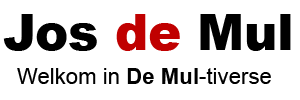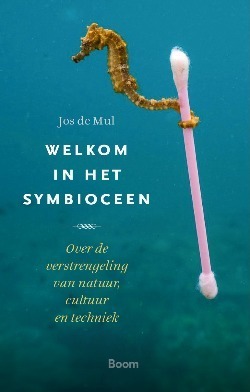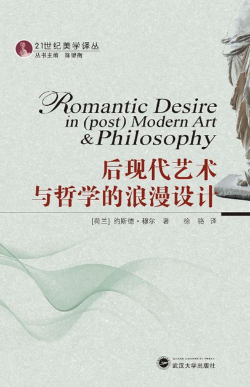Jos de Mul. Het romantische verlangen in (post)moderne kunst en filosofie. Uitgeverij Klement, 2007 (4de druk), 284 p.
1de druk, 1990; 2de druk, 1991; 3de druk,1995.
ISBN 978 90 8687 073 8
€ 24,95 (Bestel)Mensen worden gekenmerkt door een onverzadigbaar verlangen de zin van hun bestaan te doorgronden en hun leven tot een harmonieus geheel te maken. Na het verlies van de evidenties van het geloof heeft dit verlangen in de moderne tijd andere beddingen gezocht. Volgens de romantische kunstenaars en filosofen biedt slechts een esthetisering van het leven uitzicht op een harmonieus bestaan. Daarbij gaat dit romantische enthousiasme gepaard met een tragisch besef van de uiteindelijke onvervulbaarheid van het verlangen naar eenheid. De romantiek loopt daarmee vooruit op de postmoderne twijfel en ironie met betrekking tot de ‘maakbaarheid’ van harmonie.
In dit boek wordt deze romantische ambivalentie aan de hand van concrete voorbeelden uit de literatuur, beeldende kunst en muziek belicht en in verband gebracht met het eveneens ambivalente karakter van onze huidige, tussen modernisme en postmodernisme oscillerende cultuur. In deze heruitgave is in navolging van de Amerikaanse uitgave van het boek een hoofdstuk toegevoegd over virtuele romantiek, dat handelt over de spanning tussen ‘het digitale verlangen naar oneindigheid’ en de onvermijdelijke crash.
Verrassend resultaat (…) boeiende essays.’
Arnold Heumakers in de Volkskrant, 1990
Naar aanleiding van de Amerikaanse editie, o.a.:
'As it illuminates various shades of aesthetic ambiguity in (post)modern art and culture, Romantic Desire opens up a new arena where previously isolated, contradictory forces can finally come together and communicate. In creating such space, De Mul takes the crucial preliminary steps towards understanding and reconciling the ageless conflict between our desire for the eternal and our awareness of its inaccessibility.'' [complete review]
Heather L. Braun, 2001. British Journal of Aesthetics (april 2001):238-240
'Een breed synthetisch perspectief op het hedendaagse denken.'
Prof.dr. J. Norman in Philosophy in Review.
"It is good to see a text that departs from the narrowly specialized world of the journal article and aims to give a broadly synthetic perspective on contemporary thought. [...] A reader who is already sympathetic with his perspective will probably find De Mul's discussion quite valuable. But for the more skeptic reader, the real strength of the book emerges when De Mul leaves behind some of these overarching themes and concentrates on specific examples of the interplay between art and philosophy."
Judith Norman, . 2000. Philosophy in Review XX (2):93-95.
'Jos de Mul does a beautiful job of summarizing in compressed form some of the most vexed texts and ideas in contemporary theory; as a writer, he is a fine teacher. He is also an effective critic of the arts, especially painting and music. I learned and re-learned a great deal in reading this book. If a student were to ask 'What book can I read that not only explains what these people whose names I hear all the time actually say, but also demonstrates the significance of their ideas in practice?' I would be tempted to refer him or her to this book.'
Jean-Pierre Mileur, University of California, Riverside
'A fine, efficient introduction to a wealth of texts and demanding theoretical issues that few critics seem to know as well as de Mul.
Thomas Pfau, author of Idealism and the Endgame of Theory: Three Essays by F. W. J. Schelling




 Vanaf de derde druk verschijnt
Vanaf de derde druk verschijnt 





